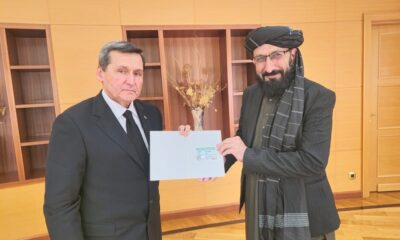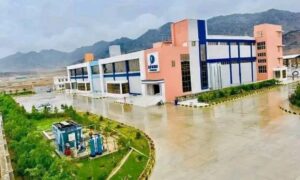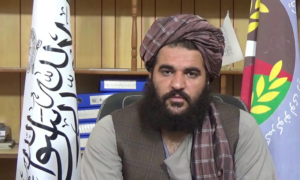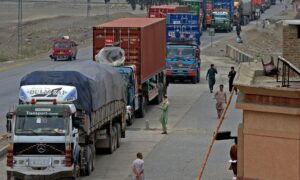Business
Seven new bread-making machines installed at Kabul Central Silo
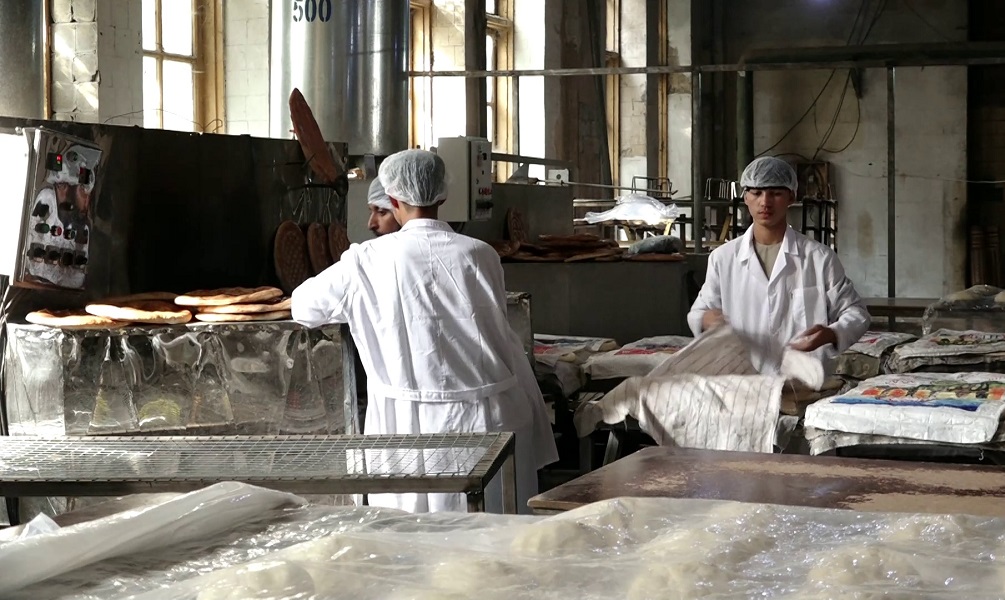
Seven bread-making machines have been installed at Afghanistan’s state-owned bread factory, Silo-e-Markazi, or central silo, in Kabul, at a cost of 40 million afghanis, officials confirmed Monday.
With these new machines in place, the silo is now able to supply the Interior Ministry, Kabul University and Kabul Polytechnic University with bread. Contracts valued at 450 million afghanis are also in place with these institutions, officials said.
“We will have collected 200 million afghanis by the end of the year,” said Nasratullah Mansoor, head of Kabul Central Silo.
In addition to revenue being generated, about 400 jobs have also been created at the silo.
According to finance ministry officials, they are hoping to restart all the old silos in the country.
“This enterprise has been serving people. Our duty is to get all enterprises to do their part,” said Abdul Hameed Akhundzada, general director of state enterprises of the finance ministry.
Kabul Central Silo resumed production in February this year after having stood idle for almost 40 years.
Silo officials said that more bread will be produced if other dormant sections of the factory are reactivated.
Business
$23 million pharmaceutical company opens in Kabul
The Islamic Emirate officials also stated that while they fully cooperate with pharmaceutical companies, these manufacturers need to produce drugs that meet international standards.
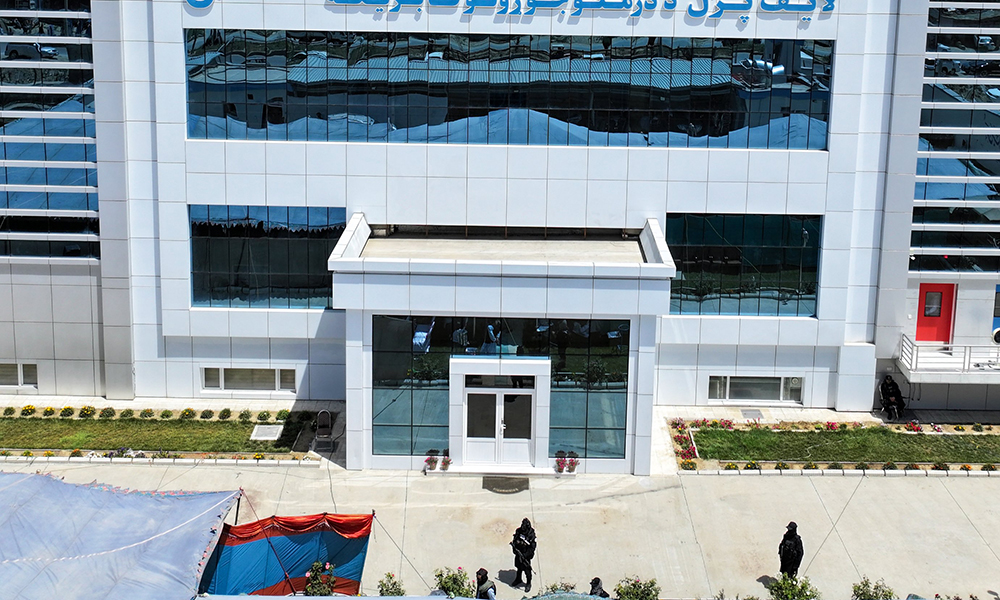
A new pharmaceutical company, costing $20 million, was officially opened on Thursday in Kabul in the presence of Islamic Emirate leaders, including Deputy Prime Minister for Economic Affairs Mullah Abdul Ghani Baradar.
The new company will reportedly manufacture 50 different types of drugs once fully operational.
Addressing the launch ceremony on Thursday, Baradar outlined the importance of quality in terms of pharmaceuticals and said poor-quality drugs threaten lives while good-quality medicines can save lives.
Baradar also pointed out that more manufacturing companies like this will help grow the country’s economy.
He once again called on investors, both in the country and abroad, to help in the reconstruction and development of the country and start businesses. He also said the way has been paved for them to invest and that they should make use of the opportunities available.
Health officials meanwhile said that currently there are 77 pharmaceutical companies in the country and that serious efforts are being made to make the country self-sufficient in this regard.
The Islamic Emirate officials also stated that while they fully cooperate with pharmaceutical companies, these manufacturers need to produce drugs that meet international standards.
Related Stories:
New medicines manufacturing company established in Nangarhar

Kandahar officials inaugurate $50 million pharmaceutical company
Business
Sugar exports to Afghanistan resume after four year break
Islamabad banned the export of sugar to Afghanistan four years ago to address shortages and control prices in the country.
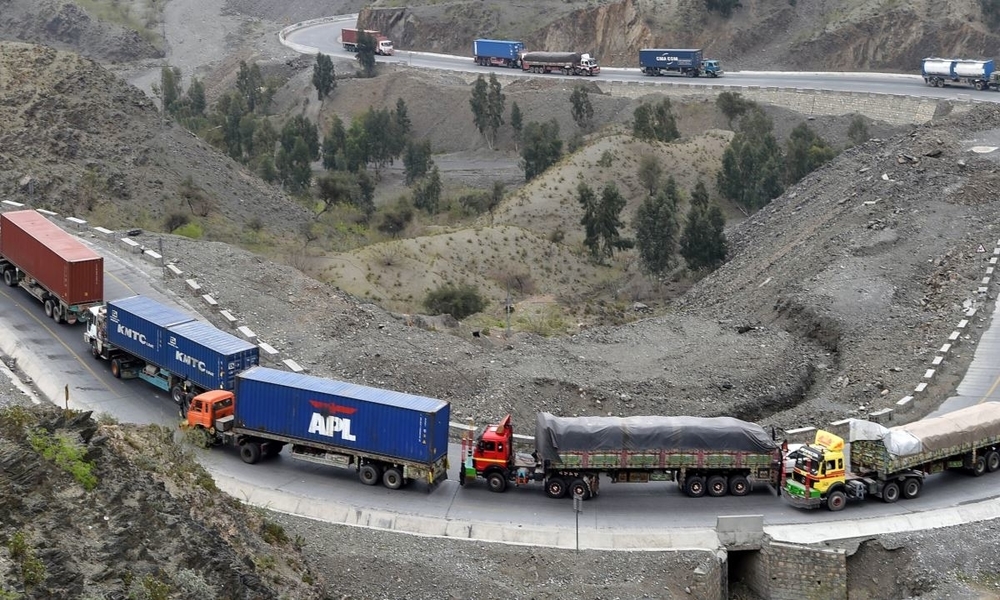
Sugar exports from Pakistan to Afghanistan resumed this week after a four-year suspension, with over 400 vehicles crossing the Torkham border in the last four days.
According to Pakistan sources, Islamabad recently agreed to the export of 150,000 tons of sugar to Afghanistan, setting an August 15 deadline for the completion of the shipment process.
Customs clearing agents at Torkham said around 100 vehicles, each carrying 33 tons of sugar, crossed into Afghanistan four days ago and more thereafter.
Islamabad banned the export of sugar to Afghanistan four years ago to address shortages and control prices in the country.
Related Stories:
Volume of imports from Pakistan has declined: official
Import, export volumes total $7.5 billion in 1st nine months of this solar year
Business
Chinese keen on investing in Afghanistan’s solar power sector
At the same time, the deputy minister welcomed their interest and stated that Afghanistan is a place of opportunities for investment and that the ministry is ready to cooperate.
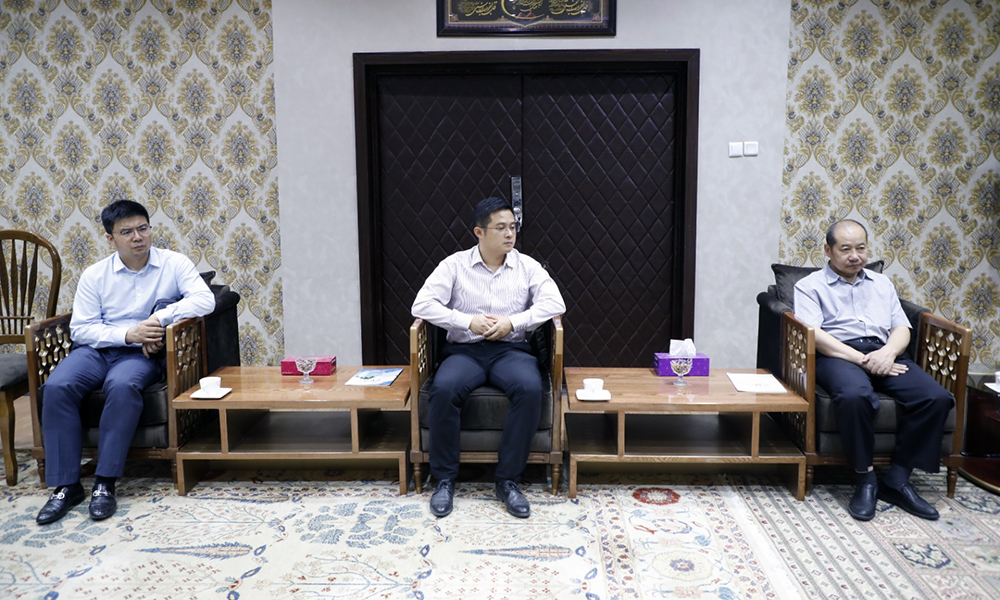
The Ministry of Industry and Commerce says that Ahmadullah Zahid, deputy minister, met with a number of Chinese investors in his office on Tuesday.
According to a statement issued by the ministry, Ehsanullah Shahab, the head of special economic zones, was also present in this meeting, where investors from China expressed their interest in investing in solar power generation and agriculture technology sectors.
At the same time, the deputy minister welcomed their interest and stated that Afghanistan is a place of opportunities for investment and that the ministry is ready to cooperate.
Related Stories:
Chinese keen to invest in Panjshir-Kabul water conduit project

120 Chinese companies held investment talks with IEA since takeover
-

 Sport4 days ago
Sport4 days agoOlympics finally here; What you need to know
-

 Latest News5 days ago
Latest News5 days agoOCHA reports 110 die in landmine explosions in Afghanistan every month
-

 Regional5 days ago
Regional5 days agoChina braces for twin tropical cyclones after deadly flash floods
-

 Health4 days ago
Health4 days agoHealth partners provide services 589,205 people in Afghanistan in last month
-

 Latest News4 days ago
Latest News4 days agoAfghanistan’s Hajj ministry confirms death of 27 pilgrims in Mecca and Medina
-

 Business5 days ago
Business5 days agoConference on Islamic microfinance kicks off in Kabul
-

 Sport4 days ago
Sport4 days agoACB proposes ODI fixtures against top-tiered teams
-
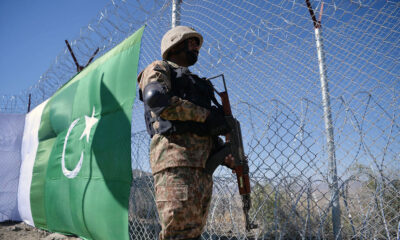
 Latest News4 days ago
Latest News4 days agoIslamabad claims three terrorists killed at Pakistan-Afghanistan border


